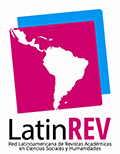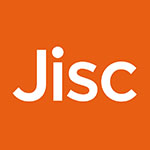Selective Engagement Strategy as Foreign Policy Alternative for a Peripheral Country
Abstract
At the beginning of Fernandez’s Administration, a new ground for a debate was raised about the best foreign policy option for the new government. Four alternatives are presented (acquiescence, equidistance, soft/hard balancing, and selective engagement). The following paper presents selective engagement as the best way to navigate the current international juncture considering transition and transformation as the main challenges to our foreign policy.
Downloads
References
Actis, E. y Creus, N. (2021). La competencia EE.UU.-China y su impacto en América Latina en el mundo post pandemia. En Fortín, C., Heine, J. y Ominami, C. (Eds.), El no alineamiento Activo y América Latina: una doctrina para un nuevo siglo (pp. 100-114). Catalonia Libros.
Actis, E. y Malacalza, B. (2021). Las políticas exteriores de América Latina en tiempos de autonomía líquida. Revista Nueva Sociedad, 291(1), 114-126. https://static.nuso.org/media/articles/downloads/5.TC_Actis_Malacalza_291.pdf.
Art, R. J. (1998-1999). Geopolitics Updated: The Strategy of Selective Engagement. International Security, 23(3), 79-113.
Battaleme, J. (2016). Realismo periférico y doble periferias: la política de seguridad de Chile y Argentina frente al ascenso de Brasil y la preponderancia norteamericana. Postdata, 21(1), 11-42.
Battaleme, J. (16 de abril de 2020). Los Grandes Poderes y la Pandemia. Clarín. https://www.clarin.com/opinion/grandes-poderes-pandemia_0_YpQQjRsis.amp.html.
Battaleme, J. (7 de septiembre de 2020). Argentina en la Guerra Fría 2.0: ¿Cual es hoy nuestro verdadero interés estratégico? El Cronista. https://www.cronista.com/cronista-global/Argentina-en-la-Guerra-Fria-2-0-cual-es-hoy-nuestro-verdadero-interes-estrategico-20200907-0035.html.
Battaleme, J. (22 de mayo de 2021). Las opciones de política exterior: ¿equidistantes o atrapados sin salida? Clarín. https://www.clarin.com/opinion/opciones-politica-exterior-equidistantes-atrapados-salida-_0_XDOUI1HZJ.html.
Battaleme, J. (26 de junio de 2021). El “compromiso selectivo” como espacio de acción en política exterior. Clarín. https://www.clarin.com/opinion/compromiso-selectivo-espacio-accion-politica-exterior_0_FY8zl9Zyr.html.
Battaleme, J. (2022). Emerging Middle Powers vs. Peripheral Leadership: Argentina and the Malvinas (Falklands) Islands under the Kirchner Administration (2010-2015). En Delgado Caicedo, J. (Ed.), Handbook of Regional Conflict Resolution Initiatives in the Global South (pp. 301-318). Routledge. https://doi.org/10.4324/9781003287018.
Battaleme, J. (5 de febrero de 2022). El compromiso selectivo como alternativa a una política exterior contradictoria. Abro Hilo. https://abrohilo.org/el-compromiso-selectivo-como-alternativa-a-una-politica-exterior-contradictoria/.
Bimbi, B. (3 de febrero de 2022). Argentina tiene que ser la puerta de entrada para que Rusia ingrese a América Latina. Télam Digital. https://www.telam.com.ar/notas/202202/582589-argentina-tiene-que-ser-la-puerta-de-entrada-para-que-rusia-ingrese-en-america-latina.html.
Bremmer, I. (2021). The Technopolar Moment: How Digital Powers Will Reshape the Global Order. Foreign Affairs, 100(6), 112-128.
Buzan, B. (2004). The United States and the Great Powers: World Politics in the Twenty First Century. Polity Press.
CFK: “No nos caímos del mundo, el que se cae es el mundo sobre nosotros”. (10 de mayo de 2012). Página 12. https://www.pagina12.com.ar/diario/ultimas/20-193733-2012-05-10.html.
De la Balze, F. (2019). La lucha por la hegemonía Mundial (Estados Unidos, China y Argentina): Especial 100 años de relaciones internacionales. Estudios Internacionales, 51(194), 195-209. https://doi.org/10.5354/0719-3769.2019.55738.
eltrece. (17 de junio de 2018). Jorge Lanata mano a mano con Mauricio Macri - Entrevista completa 17/06/2018 [Archivo de Video]. YouTube. https://www.youtube.com/watch?v=3HXXL0SXd84.
Escudé, C. (2011). China y la Inserción Internacional de Argentina (Documento de Trabajo UCEMA. Nro. 462). Universidad del CEMA. https://ucema.edu.ar/publicaciones/download/documentos/462.pdf.
Escudé, C. (2012). Principios del Realismo Periférico: una teoría argentina frente al ascenso de China. Editorial Lumiere.
Fontevecchia, J. (25 de diciembre de 2021). Santiago Cafiero: “El peronismo necesita un liderazgo consensual como el de Alberto Fernández”. Perfil. https://www.perfil.com/noticias/periodismopuro/santiago-cafiero-el-peronismo-necesita-un-liderazgo-consensual-como-el-de-alberto-fernandez-por-jorge-fontevecchia.phtml.
Fortín, C., Heine, J. y Ominami, C. (2020). Latinoamérica: no alineamiento y la segunda. Foreign Affairs Latinoamérica, 20(3), 107-115.
Fortín, C., Heine, J. y Ominami, C. (Eds.). (2021). El no alineamiento activo y América Latina: una doctrina para un nuevo siglo. Catalonia Libros.
Fukuyama, F. (septiembre/octubre de 2018). Against Identity Politics: The New Tribalism and the Crisis of Democracy. Foreign Affairs, 1-7. https://www.foreignaffairs.com/articles/americas/2018-08-14/against-identity-politics-tribalism-francis-fukuyama.
Fundación Libertad y Progreso. (2021). El conflicto de China vs. USA: Opciones para Argentina | Felipe De La Balze [Archivo de Video]. YouTube. https://www.youtube.com/watch?v=Mbqekiuh2no.
Gullo, M. (2008). La insubordinación fundante: breve historia de la construcción del poder de las Naciones. Editorial Biblos.
Heine, J. (14 de agosto de 2022). Un no alineamiento activo. Clarín. https://www.clarin.com/opinion/alineamiento-activo_0_XKHw61X7nK.html.
International Monetary Fund. (2021). World Economic Outlook. https://www.imf.org/en/Publications/WEO/Issues/2021/10/12/world-economic-outlook-october-2021.
Jesse, N. G., Lobell, S. E., Press-Barnathan, G. y William, K. P. (2012). Beyond Great Powers and Hegemons: Why Secondary States Support, Follow, or Challenge. Stanford University Press.
La economía argentina es resistente a las crisis internacionales. (22 de abril de 2015). Política y Medios. https://politicaymedios.com.ar/nota/7663/la-economia-argentina-es-resistente-a-las-crisis-internacionales-afirmo-kicillof/.
Layne, C. (2006). The Peace of Illusions: American Grand Strategy from 1940 to the Present. Cornell University Press.
Malacalza, B. (31 de mayo de 2021). El camino a la equidistancia: aprendizajes del Sudeste asiático. Clarín. https://www.clarin.com/opinion/camino-equidistancia-aprendizajes-sudeste-asiatico_0_C1LZdNC59.html.
Martín Guzmán dijo que el “problema inflacionario” se incrementó con la guerra entre Rusia y Ucrania. (20 de abril de 2022). El Economista. https://eleconomista.com.ar/economia/martin-guzman-dijo-problema-inflacionario-incremento-guerra-rusia-ucrania-n52501
Míguez, M. C. (2017). La autonomía heterodoxa y la clasificación de las políticas exteriores de la Argentina. Revista de Relaciones Internacionales, Estrategia y Seguridad, 12(2). http://www.scielo.org.co/scielo.php?script=sci_arttext&pid=S1909-30632017000200010.
Morgenfeld, L. (25 de marzo de 2016). El amigo americano. Revista Anfibia. https://www.revistaanfibia.com/el-amigo-americano/.
Morghentau, H. (1986). Política entre las naciones: la lucha por el poder y la paz. Grupo Editor Latinoamericano.
Pape, R. A. (2005). Soft Balancing Against the United States. International Security, 30(1), 7-45.
Posen, B. R. (2020). Do Pandemics Promote Peace: Why Sickness Slows the March To War? Foreign Affairs, 1-4. https://www.foreignaffairs.com/articles/china/2020-04-23/do-pandemics-promote-peace.
Russell, R. y Tokatlián, J. G. (2010). Autonomía y neutralidad en la globalización: una readaptación contemporánea. Capital Intelectual.
Russell, R. y Tokatlián, J. G. (2013). América Latina y su gran estrategia: entre la aquiescencia y la autonomía. Revista CIDOB d’Afers Internacionals, 104(1), 157-180.
Russell Mead, W. (2014). The Return of Geopolitics: The Revenge of Revisionist Powers. Foreign Affairs, 93(3), 69-79.
Schweller, R. (2014). The Age of Entropy: Why the New World Order won’t be Orderly. Foreign Affairs, 1-5. https://www.foreignaffairs.com/articles/united-states/2014-06-16/age-entropy.
Slaughter, A. M. (2016). How to succeed in the networked world: a grand strategy for the digital age. Foreign Affairs, 95(6), 76-89.
Tokatlián, J. G. (10 de enero de 2017). Argentina y la Guardia Nacional de Georgia. Clarín. https://www.clarin.com/opinion/argentina-guardia-nacional-georgia_0_B1lNI1kUg.html.
Tokatlián, J. G. (2021). Estados Unidos y América Latina: Por una diplomacia de equidistancia. En Fortín, C., Heine, J. y Ominami, C. (Eds.), El no alineamiento Activo y América Latina: Una doctrina para un nuevo siglo (pp. 61-82). Catalonia Libros.
Turzi, M. (13 de julio de 2021). La Argentina en el Mundo que viene. Embajada Abierta. https://www.embajadaabierta.org/post/argentina-en-el-mundo-que-viene-por-mariano-turzi.
Zakaria, F. (2008). The Future of American Power: How American survive the rise of the Rest. Foreign Affairs, 87(3), 18-43.
Copyright (c) 2022 Juan Battaleme

This work is licensed under a Creative Commons Attribution-NonCommercial-NoDerivatives 4.0 International License.
This license allows the copy, distribution, exhibition and representation of the work provided authorship is acknowledged and the work is properly quoted. Commercial use of the original work or the generation of derived works are not allowed.
The authors hereby guarantee the right to the first publication of the work to the Revista Política Austral.






























